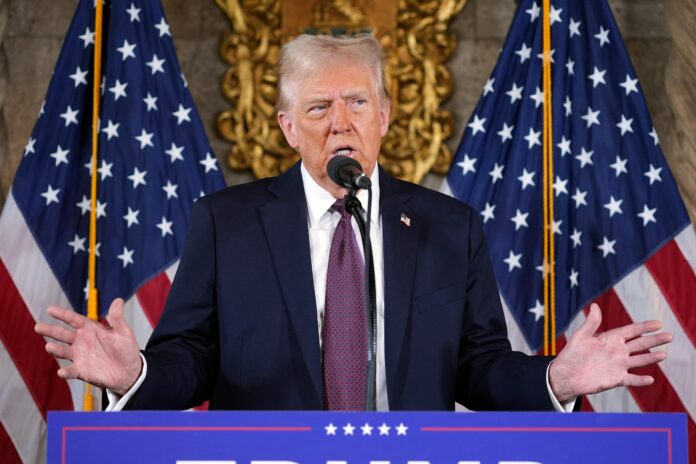In a recent press conference at Mar-a-Lago, President-elect Donald Trump announced his intention to rename the Gulf of Mexico to the “Gulf of America.” This proposal has sparked significant discussion and debate, given the historical and geopolitical implications of such a change.
Historical Context of the Gulf of Mexico
The Gulf of Mexico, an ocean basin largely surrounded by the North American continent, has been recognized by its current name since the 16th century. Spanish explorers, who were among the first Europeans to chart the region, referred to it as “Golfo de México,” a designation that has persisted for over 500 years. The gulf plays a crucial role in the economies and ecologies of the United States, Mexico, and Cuba, serving as a vital conduit for maritime trade, energy resources, and biodiversity.
President-elect’s Proposal
During the press conference, President-elect Trump stated, “We’re going to be changing the name of the Gulf of Mexico to the Gulf of America, which has a beautiful ring… And it’s appropriate. It’s appropriate.”
He linked this proposal to concerns over immigration, emphasizing that Mexico must “stop allowing millions of people to pour into our country.”
Legislative Support
Following the announcement, Representative Marjorie Taylor Greene of Georgia expressed her support for the name change. She indicated plans to introduce legislation to formalize the renaming, stating, “It’s our gulf. The rightful name is the Gulf of America and it’s what the entire world should refer to it as.”
Geopolitical Implications
Renaming a major geographic feature such as the Gulf of Mexico carries significant geopolitical implications. The gulf is bordered by the United States, Mexico, and Cuba, with Mexico having approximately 60 more miles of coastline along the gulf than the U.S.
Such a unilateral name change could affect diplomatic relations, particularly with Mexico, which shares a substantial portion of the gulf’s coastline.
Public and Political Reaction
The proposal has elicited a range of reactions. Supporters argue that the name change reflects American contributions to the security and economic utilization of the gulf. Critics, however, view it as an unnecessary provocation that could strain international relations. As of now, it remains unclear whether the President-elect possesses the authority to unilaterally implement such a change, or if it would require broader legislative approval.
Conclusion
The proposal to rename the Gulf of Mexico to the Gulf of America introduces a complex issue at the intersection of history, geopolitics, and national identity. As discussions continue, the implications of such a change will be closely examined by policymakers, historians, and the international community.


